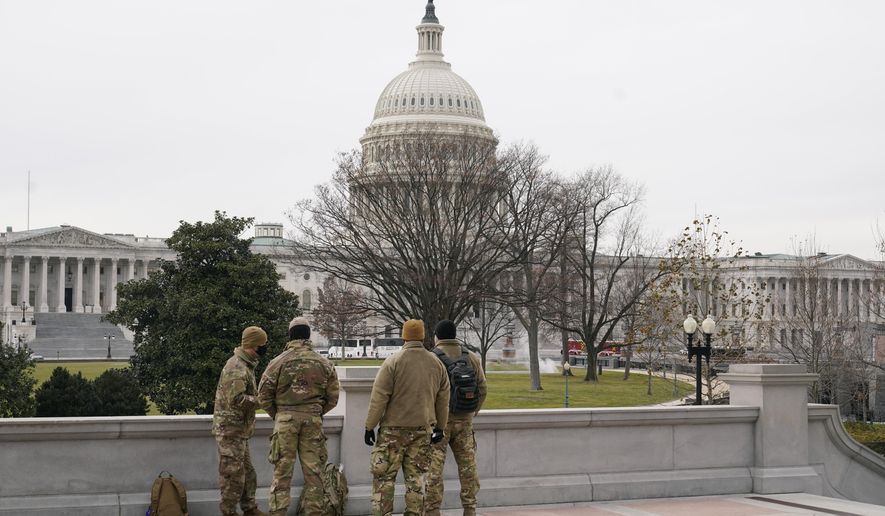The White House isn’t the only place seeing a changing of the guard these days.
With Democratic Senate gains and results from a few key House races, the congressional committees overseeing defense, foreign policy and intelligence will have a new look in 2021, giving the Biden administration a leg up on its foreign policy agenda.
Sen. Robert Menendez, New Jersey Democrat, is poised to retake control of the Senate Foreign Relations Committee, replacing Republican Sen. James Risch of Idaho, who chaired the panel since 2019. Sen. Jack Reed, Rhode Island Democrat, is getting the gavel for the Senate Armed Services Committee, with former Chairman James M. Inhofe, Oklahoma Republican now the ranking minority member.
In the House, Rep. Eliot Engel’s New York Democratic primary loss last year led to a scramble for chairmanship of the House Foreign Relations Committee, won by another New York Democrat, Rep. Gregory Meeks — the first Black member to hold the prestigious post. And with the retirement of Rep. Mac Thornberry, Texas Republican, the House Armed Services Committee has lost a former chairman and one of the Hill’s most respected and influential voices on military matters.
For some, the new posts marks a return to the old days.
Mr. Menendez headed the Senate Foreign Relations panel from 2013 to 2015, and has an active relationship with another previous chair of the committee — President Biden.
Mr. Biden’s deep familiarity with the ways of Capitol Hill will be tested as he tries to implement his foreign policy and defense priorities.
“There were a lot of tensions between Trump at the Congress on the defense side,” said Mark Cancian, a senior adviser for the Center for Strategic and International Security’s international security program.
Under the Trump administration, for example, Republican lawmakers narrowly defeated efforts led by Mr. Menendez to block major arms deals with Saudi Arabia and the United Arab Emirates.
As returning chairman of a closely divided panel, Mr. Menendez will also have to weigh whether to reverse a slew of eleventh-hour moves under the Trump administration, including sanctions on Turkey, a NATO ally, for its acquisition of a Russian-made missile defense system; the withdrawal of thousands of American troops from Afghanistan and Iraq; restoring American alliances; and confirming dozens of State Department nominees.
Mr. Menendez has pushed to swiftly confirm Mr. Biden’s national security cabinet selections, including his pick for secretary of state, Antony Blinken.
The Senate Armed Services Committee, which oversees military confirmations and budget allocations, is also about to get very different leadership under Mr. Reed.
The West Point grad and former Army officer has a generally productive relationship with his Republican colleagues and the former chairman, as seen in Mr. Inhofe’s recent gesture to allow Mr. Reed to informally chair a committee hearing. But Mr. Reed faces a tumultuous time at the helm with expected defense budget cuts sought by the president that are opposed by his GOP members.
“Reed and Smith both say, ‘The budget needs to get cut,’ but then when they start looking at the [details], they’re going to have some pushback,” Mr. Cancian said, noting House Armed Services Committee Chairman Adam Smith, Washington state Democrat, will be under pressure to produce bigger cuts.
Mr. Cancian predicted in an interview with The Washington Times that both defense policy and the military budget will present tension for the incoming Democratic leadership, “but the budget will be probably the clearest early on.”
Democrats are unlikely to waver on early defense policy priorities, including reversing Mr. Trump’s ban on transgender service members and blocking Pentagon money for border wall construction.
On the House side, Mr. Meeks will likely offer a very different agenda compared to Mr. Engel.
In an interview with Agence France-Presse earlier this month, Mr. Meeks vowed to be an ally for the new president and sharply criticized foreign policy under the Trump administration.
“If you look at what President Trump has done in his maximum pressure campaign, the big question you ask yourself is has it made America safer. The answer is a big capital ‘no,’” he said, citing in particular Mr. Trump’s withdrawal from the Obama-era Iran nuclear deal. He also hit back at the Trump administration’s approach to the political crisis in Venezuela, and called for a more serious look at human rights abuses that he claims were ignored the last four years.
The House Armed Services Committee under Mr. Smith has already delivered one victory for Mr. Biden, approving on Thursday a waiver to allow former Gen. Lloyd Austin to serve as secretary of defense despite his recent service in the military, a waiver many Democrats had previously said they would not support.
• Lauren Toms can be reached at lmeier@washingtontimes.com.




Please read our comment policy before commenting.